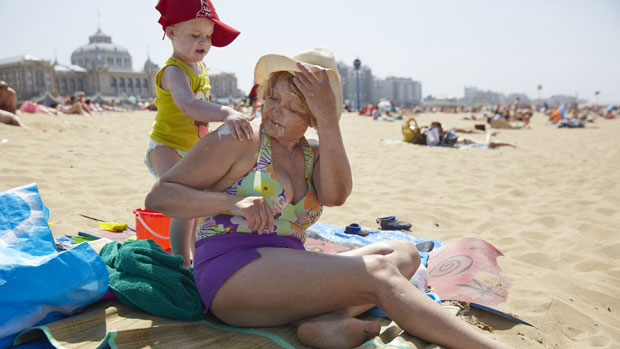Sunblock alone 'won't prevent skin cancer'
Researchers find that high-factor sunscreen alone does not provide total protection from skin cancer

A free daily email with the biggest news stories of the day – and the best features from TheWeek.com
You are now subscribed
Your newsletter sign-up was successful
As summer finally arrives in the UK, scientists have warned that not even the highest factor sunblock can provide total protection against skin cancer.
Researchers at the University of Manchester and Cancer Research UK have found that factor 50 sunscreen slows down the development of malignant melanoma but it does not lower the risk completely.
13,000 people are diagnosed every year with malignant melanoma, which is the fifth most common cancer in the UK.
The Week
Escape your echo chamber. Get the facts behind the news, plus analysis from multiple perspectives.

Sign up for The Week's Free Newsletters
From our morning news briefing to a weekly Good News Newsletter, get the best of The Week delivered directly to your inbox.
From our morning news briefing to a weekly Good News Newsletter, get the best of The Week delivered directly to your inbox.
The study, published in Nature today, focused on the effects of UV light damage to mice at risk from developing melanoma.
Scientists found that despite being coated in SPF 50 sunblock, mice exposed to UV rays still developed tumours leading to skin cancer, although at a much slower pace than those with no protection.
Exposure to UV light may penetrate sunblock and cause damage to the p53 gene, which protects DNA from sun damage, increasing the risk of developing skin cancer, the researchers said.
"Sunscreens were developed to prevent the immediate effects of sun exposure, such as red skin and burning," Professor Richard Marais, who led the research, told the Daily Telegraph. "DNA damage is invisible. Don’t expect that because you’ve slapped on a load of sunscreen that you’re invincible."
A free daily email with the biggest news stories of the day – and the best features from TheWeek.com
Scientists had previously studied the effects of sun exposure on the skin and the development of skin cancer, but had not directly observed the effects of UV light damage on the skin.
Researchers are warning people to take extra measures alongside using sun screen to protect against harmful rays, by wearing hats and trying to spend some time in the shade.
Marais said: "It's very important for people to know that sunscreen works. They should use it with the understanding that it will help, but it won't prevent it."